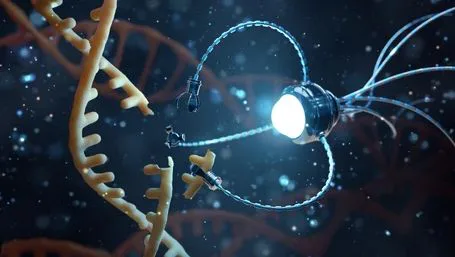Infidelity is very general trait to be observed in the animal kingdom. Maternal and paternal genetic tests have revealed that even the species that were considered to be faithful in their relationship, were often not loyal to each other. Merely about 10 percent of the species follow monogamy and are truly faithful to each other. However, according to a latest research led by University of Pennsylvania revealed that Azara’s owl monkeys (Aotus azarae) are remarkably devoted and faithful to their mating partners.
Researchers conducted genetic tests on 35 newborn offspring of 17 couples of owl monkeys and found the couples to be the biological parents of the offspring, eliminating the suspicion of cheating. Researchers also found an evident relation between the mammals’ loyalty and outstanding participation of males in taking due care of their offspring.
These primates have been the topic of study by the Penn evolutionary anthropologists, for the last 18 years in Argentina’s Chaco territory. Earlier research work supports the fact that the male and the female owl monkeys are bonded strongly and male participates in raising their offspring. They have been seen carrying them, feeding them and playing with them as well.
Nevertheless, the monogamous behavior of the mammals was long known, no one ever conducted a genetic test to support the belief. To determine whether the species were monogamous, researchers conducted genetic tests to confirm if the social parents were the real biological parent of the offspring or whether there are any cases where the females mate with a male other than her partner, a practice known as extra pair paternity. Genetic samples were pooled from 128 separate monkeys residing in 29 groups or as isolated floaters. The test included genetic samples collected from 35 offspring born to 17 reproducing couples.
Surprisingly the after analyzing 14 distinct areas of the genome, the result clearly marked that the owl monkeys were truly loyal and there was no proof of any extra pair paternity.
As per Eduardo Fernandez-Duque, study author and an associate professor in Penn Arts and Sciences’ Department of Anthropology, they never observed any deceitful sexual relation with a neighbor in 18 years of observation and so the result does not surprise them much. In the animal kingdom, observing a perfect genetic monogamy is absolutely uncommon, but they did not find any instance of non pair offspring.
Researchers also found that the species in which males participated significantly in raising their offspring were more inclined towards practicing monogamy. Also male and the females that spend more time together, formed stronger bond and were less likely to engage in extra pair paternity. However, the main reason behind the owl monkey behavior is still unclear.
The owl monkey behavior as of now supports the theory that under certain definite ecological conditions, this inclination towards one another results in spending quality time with each, thus aiding in paternal care and paternity assurance. Genetic monogamy is the outcome, says Fernandez-Duque.
Source: redOrbit




